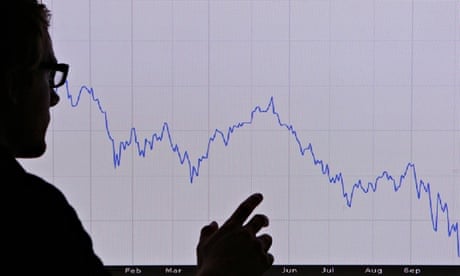Why should the state intervene in what a private company chooses to pay its CEO? A study published by the High Pay Centre, an independent thinktank, shows that the CEOs of FTSE 100 companies – the largest 100 companies listed in the UK – are earning on average 143 times more than their staff. The most egregious cases include Lord Wolfson at Next, who received £4.6m a year, while his staff, most of whom work on the shop floor, typically took home £10,000 – an obscene 459 times less than their boss – and Mark Bristow at Rangold Resources, who was paid a dystopian wage nearly 1,500 times that of his average employees, many of whom work in the company’s African mines.
The subject of CEO-to-worker wage ratios has been a hot topic of conversation throughout much of the developed world, including the US, the EU and Switzerland. It is a convenient proxy for a more general debate on income inequalities. In the US, plans to mandate companies to publish the ratio of the chief executive’s wage to the employee median wage are at an advanced stage. EU proposal giving shareholders the right to vote that ratio down has been met with much hostility.
Even traditionally business capital-friendly Switzerland has had a referendum on pegging executive pay to 12 times that of the lowest paid worker. The plan was rejected 2:1, but proposals to ban golden hellos and goodbyes and beef up shareholder powers to veto managerial salaries were approved. These are hardly examples of business-hostile, communist vipers’ nests.
Much economic thinking is moving away from “tournament theory” – the idea that the market for CEOs is a “winner takes all” one and that in their effort to become better and better paid, they stimulate all those around them to increased productivity. On the contrary, research shows that beyond a certain point such disparity acts as a disincentive for the workforce. Prof Philippe Jacquart, co-author of a recent paper on high pay, argues that when “financial incentives fill up your entire thinking space, [they prevent] you from focusing on other things or being open to ideas”.
Nor is there much stock in the notion that top dollar is the only way to secure the services of the best. Lloyd Blankfein, the chairman and CEO of the Goldman Sachs Group, was reportedly paid just shy of $70m in 2007. The total had dropped to under $10m in 2009. He is still in the same post. According to the High Pay Centre, in the late 1990s, FTSE 100 chief executives took home 60 times the average annual earnings in Britain. That ratio has jumped to 174. Either CEOs have become three times more effective in two decades, or there are structural reasons behind this widening gap.
Again, why should the state intervene in what a private company chooses to pay its CEO?
Crucially, there is a legitimate economic school of thought that posits that inequality leads to collapse. In 1929, just before the Great Depression in the US, the top 1% accrued over 22% of total national income. This sort of figure would not be seen again in the US economy until 2006, just before the global financial crisis.
Correlation does not, of course, equal causation. I find it interesting, nevertheless, to observe this newfound Eurosceptic fervour gripping the Conservative party, at the very moment Brussels begins to consider the regulation of executive pay, bonuses and a tax on financial transactions.
I am not a betting man, but if I were I would be placing a few bob on these items being near the top of the agenda should David Cameron get his wish to renegotiate the UK’s relationship with the EU.
Wolfson has expressly voiced his backing for such renegotiations, one must assume, speaking as a captain of industry entirely unaffected by personal interest.
Inequality is a political issue, but an economic one, too. Thaker and Williamson suggest that increased levels of inequality create the preconditions for crises: high levels of unsustainable private debt as people struggle to maintain lifestyle; large pools of “idle wealth” that increase demand for overly complex financial instruments; and disproportionate political power for the elites, which can affect stability. All three of these warning signs can be observed in the UK and globally, right now.
The answer to “why should the state intervene in what a private company chooses to pay its CEO?” is simply this: in an era of bastardised capitalism, where the public purse underwrites the risks and failures of private companies deemed too big to fail, it is not unreasonable for the state to have a say in factors that affect the stability of such corporations.
